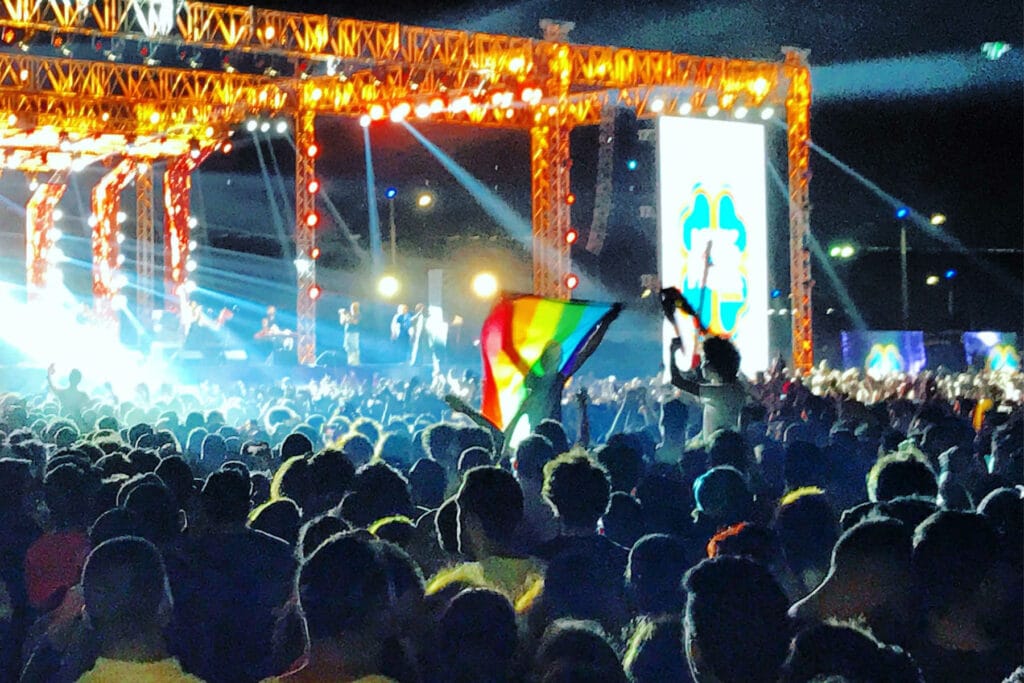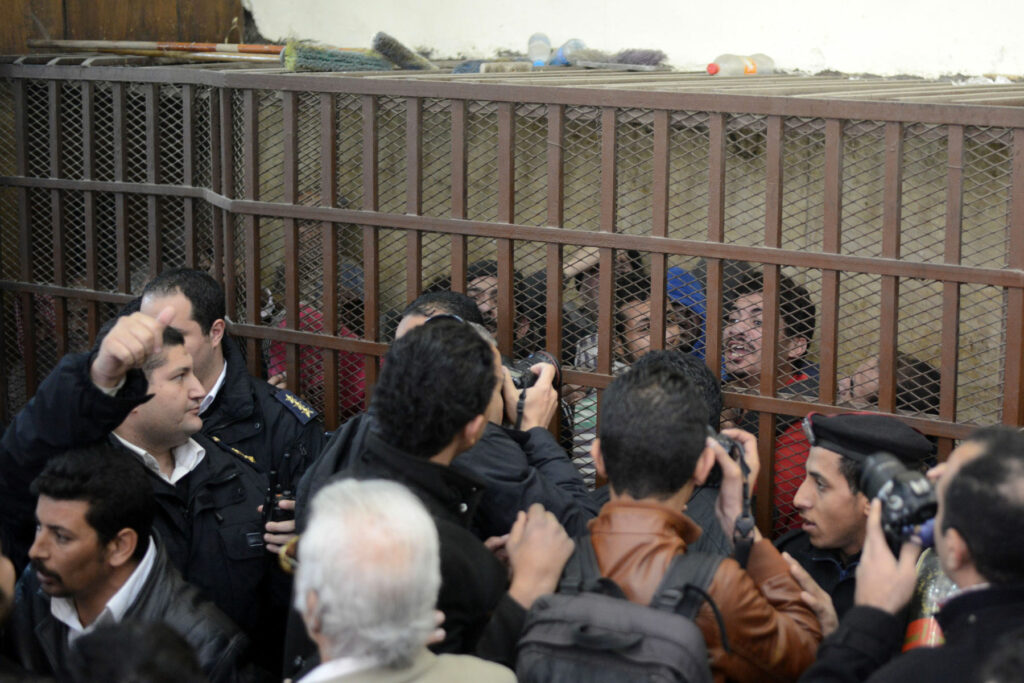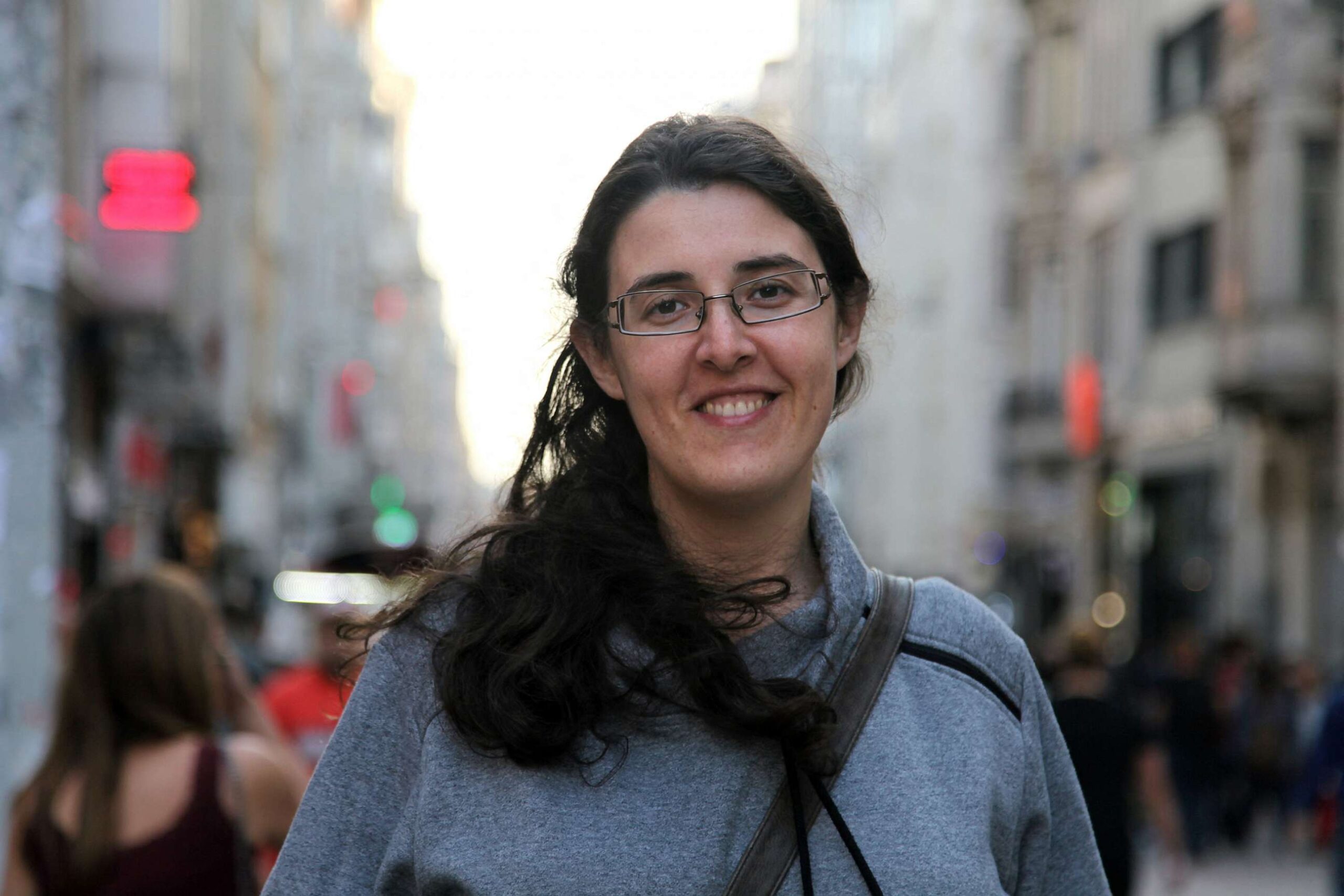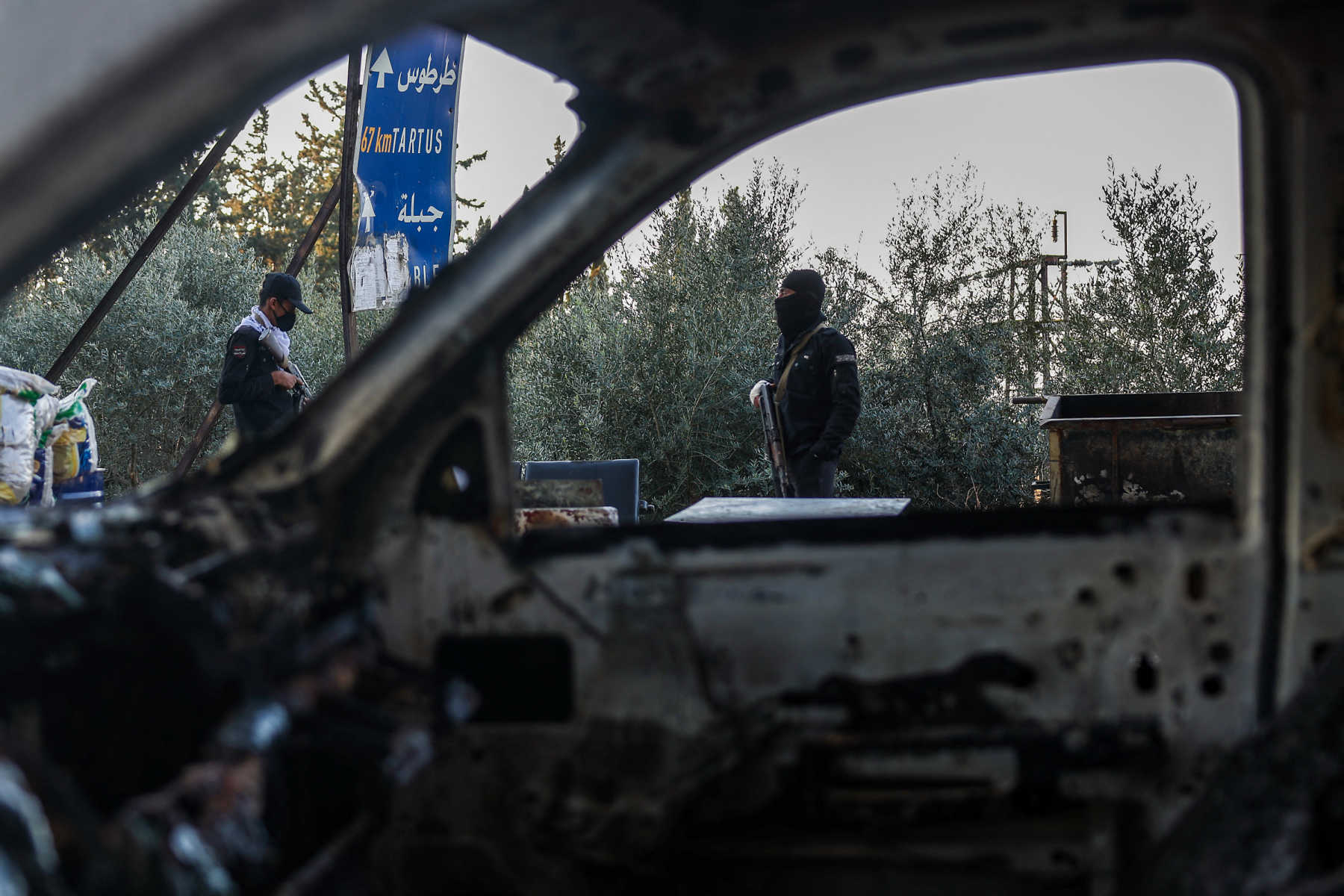Ahmed Shihab-Eldin is an Emmy-nominated journalist, producer and actor. He recently finished a two-year long documentary investigation with the BBC called Queer Egypt Under Attack.
Egypt's revolution in 2011 began on Jan. 25, a date chosen by young Egyptians to coincide with the annual Police Day as a revolt against increasing police brutality under then-President Hosni Mubarak. The 18-day uprising led to Mubarak's ouster after nearly 30 years in power and ushered in a brief era when Egyptians could revel in an expanding space for freedom of expression. The spirit of progress and possibility was palpable—a heartbeat felt throughout Egypt, including among some of the most marginalized in society: queer Egyptians.
Today, many Egyptians feel like they can't breathe. They are suffocating under a brutal crackdown on NGOs, independent media and any alternative voices challenging the status quo. Since President Abdel Fattah al-Sisi seized power in a coup in 2013, waves of mass arrests in Egypt have targeted journalists, human rights lawyers, academics and the LGBTQ+ community. No one really knows how many political prisoners there are in Egypt, though credible estimates from human rights organizations say it is at least 65,000.
Sisi's scale of repression did not emerge from nowhere. Having grown up in Egypt for almost a decade in the 1990s, I've witnessed first-hand how pervasive the patriarchy is and how it is weaponized to oppress minorities and marginalized groups.
Queer Egyptians can't go to the police or authorities when they are attacked or entrapped, because they fear being jailed themselves on trumped-up charges of debauchery or sex work. Just being on dating apps can be grounds for arrest.
- Ahmed Shihab-Eldin
Violent attacks on queer people in particular often happen with impunity. While homosexuality isn't technically illegal in Egypt, I've spent the last two years working with the BBC on an investigation exposing how the country's security forces use laws designed to protect against "debauchery"—originally a sex work charge—to criminalize LGBTQ+ people.
Our investigation began when I came across a shocking video that had gone viral in Egypt. The harrowing footage shows five people from the LGBTQ+ community being beaten up and abused by a criminal gang, while forced to say their full names and admit they are gay on camera.
Egypt's high courts have defined debauchery as sex between members of the same sex, whether money is exchanged or not, despite the law originally relating to charges of sex work. Relying on exclusive access to police transcripts, we uncovered how Egypt's vice police and violent gangs are using the same tactics, posing as potential dates on dating apps to target, harass and abuse the queer community.
The extraordinary transcripts from dating apps that we reported on prove that some of those arrested were only looking for love, dates and even new friendships online. Obvious patterns emerge, where police often try to coerce their victims to agree to exchange sex for money to help them secure a charge of "indiscriminate sex" tied to debauchery. But there are also police transcripts where there is no mention of any financial transactions.

In recent years, NGOs in Egypt focused on protecting LGBTQ+ rights have been forced underground or into exile, but fragile networks of support within the community remain. That allowed me to speak to dozens of people who feel that laws made to combat sex work are being used to arrest them for their sexuality alone.
Egypt is a signatory of international agreements that protect the freedoms of individuals against arbitrary arrest. And Egypt's own constitution defends the right to dignity and to equality and, crucially, from discrimination. But in 2016, Egypt led a group of 57 countries to reject a United Nations resolution for the protection of LGBTQ+ people's basic human rights.
In Egypt, queer people must learn to simply survive before being aware that they are even in survival mode. Many people must constantly perform their masculinity or femininity, at the risk of self-disassociation.
This is all happening within a context of economic despair in Egypt. Nearly a third of Egyptians are suffering below the poverty line while enduring severe and evermore violent political oppression. The military's growing involvement in the economy has been disastrous, as Sisi has fixated on costly megaprojects that drain the state's budget and don't create jobs. Companies owned by the army and its proxies have crowded out the private sector in countless fields.
The 2013 military coup that put Sisi in power was largely funded by billions of dollars from the United Arab Emirates and Saudi Arabia. Rather than spend this money on education, affordable housing or health care, Sisi has wasted billions on vanity projects catering to Egypt's military economy—with vast new roadways, presidential palaces, luxury hotels and ab isolated new capital in the desert far outside Cairo. In the past decade under Sisi, Egypt's foreign debt has tripled to nearly $160 billion.
In 2017, a few young Egyptians raised rainbow flags at a concert in Cairo of Mashrou Leila, a Lebanese band that champions gay rights, leading to the arrest of dozens of people for "debauchery" and "incitement to debauchery." Shortly after, Egypt's Supreme Council for Media Regulation imposed a media blackout on LGBTQ+ representation, except when—and I quote—"they acknowledge the fact that their conduct is inappropriate and repent for it."

Many of those arrested in this crackdown after the Mashrou Leila concert say they were subjected to torture, with some serving six-year sentences in jail. The only woman arrested at the time was Sarah Hegazy, who had joyously raised a pride flag at the concert. She said she was tortured by police, who told other inmates to abuse her. After being released, she was fired from her job and eventually managed to flee Egypt to Canada, where she suffered PTSD and panic attacks that only intensified after the death of her mother. This should have been the end of Sarah's tragedy, but there was another devastating chapter to come. In June 2020, Sarah took her own life in Canada.
Most of the queer Egyptians I spoke to said they often dream of leaving the country. But the reality is, many who are granted asylum carry their traumas with them in exile. So while asylum can guarantee physical safety, many struggle with mental health issues and PTSD long after they escape Egypt, like Sarah Hegazy did.
It is hard to overstate how vulnerable this marginalized community is. Queer Egyptians can't go to the police or authorities when they are attacked or entrapped, because they fear being jailed themselves on trumped-up charges of debauchery or sex work. Just being on dating apps can be grounds for arrest, based on the incitement of debauchery and other public morality laws in Egypt.
One 18-year-old I spoke to who was attacked by the gang we follow in our BBC investigation asked his lawyer if he could report them to the police. The lawyer warned him not to and that he would very easily be charged with debauchery if he did. "My lawyer said that my offense is more severe than my attacker, according to Egyptian society," he told me.
In the video taken and posted by the gang, this young man was being forced to falsely say he was a sex worker. Legal experts told us it was unlikely this video could have been used against him in court, as it was so clearly coerced, but his lawyer felt differently.
Most of the queer Egyptians I spoke to said they often dream of leaving the country. But the reality is, many who are granted asylum carry their traumas with them in exile.
- Ahmed Shihab-Eldin
This discrimination is not confined to Egypt but extends across the Arab world. Governments are targeting queer people more ruthlessly—detaining them, confiscating their phones, denying them access to a lawyer, and forcing them to sign coerced confessions.
We've seen rainbow purges in several Arab countries—coordinated campaigns against any business or product that features rainbow symbols. In the summer of 2022, an anti-LGBTQ+ movement sprung up on social media in Egypt, calling itself Fetrah, which in Arabic can mean "human instinct" (also, the state of purity and innocence). Across various social media platforms, Fetrah encouraged young people to reject homosexuality as "deviant," along with so-called "Western" LGBTQ+ symbols. Fetrah quickly went viral. Its original page was eventually banned by Facebook but not before it gained half a million "likes." And you can still find its hashtags and bigotry being posted in Arabic across the region on a daily basis.
Fetrah's message echoes Arab governments that frame LGBTQ+ rights as somehow only "Western" and an attempt to impose corrupt outside values on Arab society. Many queer people, in Egypt and through the region, find themselves stuck between submitting to fear and going into hiding.
By essentially outlawing public discussion of gender and sexual orientation in society, Egypt's government effectively ensures that these concepts remain taboo, and simultaneously, a welcome tool to distract from the broader and protracted crisis most Egyptians are enduring under Sisi's regime. The state is able to maintain a false narrative: that LBGTQ+ rights are merely a Western device to corrupt and even delegitimize its religious and national authority.
I hope the stories in our documentary, "Queer Egypt Under Attack," humanize this community, inspire empathy and spur more constructive conversations about how to protect their basic rights and dignity.

















![Security forces loyal to the interim Syrian government stand guard at a checkpoint previously held by supporters of deposed president Bashar al-Assad, in the town of Hmeimim, in the coastal province of Latakia, on March 11, 2025. Syria's new authorities announced on March 10, the end of an operation against loyalists of deposed president Bashar al-Assad, after a war monitor reported more than 1,000 civilians killed in the worst violence since his overthrow. The Syrian Observatory for Human Rights said the overwhelming majority of the 1,068 civilians killed since March 6, were members of the Alawite minority who were executed by the security forces or allied groups. (Photo by OMAR HAJ KADOUR / AFP) / “The erroneous mention[s] appearing in the metadata of this photo by OMAR HAJ KADOUR has been modified in AFP systems in the following manner: [Hmeimim] instead of [Ayn Shiqaq]. Please immediately remove the erroneous mention[s] from all your online services and delete it (them) from your servers. If you have been authorized by AFP to distribute it (them) to third parties, please ensure that the same actions are carried out by them. Failure to promptly comply with these instructions will entail liability on your part for any continued or post notification usage. Therefore we thank you very much for all your attention and prompt action. We are sorry for the inconvenience this notification may cause and remain at your disposal for any further information you may require.”](https://dawnmena.org/wp-content/uploads/2025/04/syria-22039885951-350x250.jpg)











![Security forces loyal to the interim Syrian government stand guard at a checkpoint previously held by supporters of deposed president Bashar al-Assad, in the town of Hmeimim, in the coastal province of Latakia, on March 11, 2025. Syria's new authorities announced on March 10, the end of an operation against loyalists of deposed president Bashar al-Assad, after a war monitor reported more than 1,000 civilians killed in the worst violence since his overthrow. The Syrian Observatory for Human Rights said the overwhelming majority of the 1,068 civilians killed since March 6, were members of the Alawite minority who were executed by the security forces or allied groups. (Photo by OMAR HAJ KADOUR / AFP) / “The erroneous mention[s] appearing in the metadata of this photo by OMAR HAJ KADOUR has been modified in AFP systems in the following manner: [Hmeimim] instead of [Ayn Shiqaq]. Please immediately remove the erroneous mention[s] from all your online services and delete it (them) from your servers. If you have been authorized by AFP to distribute it (them) to third parties, please ensure that the same actions are carried out by them. Failure to promptly comply with these instructions will entail liability on your part for any continued or post notification usage. Therefore we thank you very much for all your attention and prompt action. We are sorry for the inconvenience this notification may cause and remain at your disposal for any further information you may require.”](https://dawnmena.org/wp-content/uploads/2025/04/syria-22039885951-360x180.jpg)







